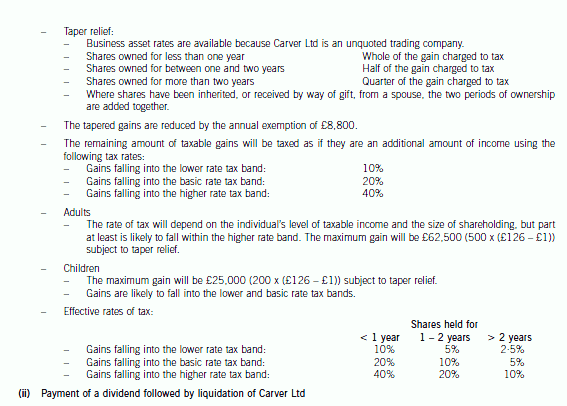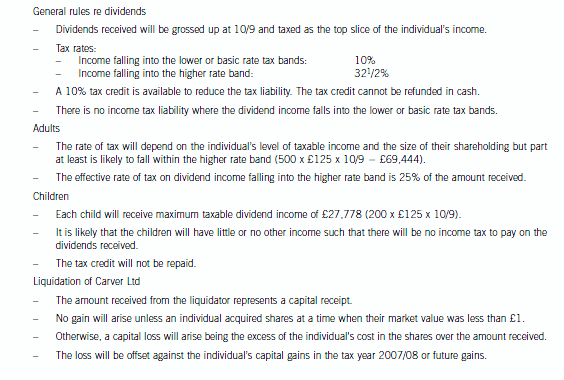如果广东省考生符合这些条件,那么ACCA证书就是为你量身订做的
发布时间:2020-01-09
听闻ACCA证书含金量高你就随大众就去报考?听闻ACCA考试难度很大然后你就放弃考试?这样的想法可是不对的,做什么事一旦决定了就要坚持下去,坚持不懈虽然不一定成功,但一定会不留遗憾的。虽然关于ACCA考试并不适合大家全部人都去报考,但下面这几类人去51题库考试学习网十分建议去报考的
1、高中及大专学历者
在职场上,因为学历的原因吃了不少的亏的人,建议可以去报考ACCA考试,因为随着财务金融领域对这方面要求的综合素质又比较高,那么通过ACCA来提高自己的学历以及职业竞争力,是一箭双雕的选择。
2、学校不好想要逆袭
那些不是985或者211院校的普通院校毕业的同学,其实学习ACCA,不仅能提高英语成绩,提高眼界和知识面,还能提高你的自信和思维能力,在面对名校人才竞争时,你未必争不过。
3、英国留学生、会计硕士
ACCA是英国的财会考试,如果你正好在英国留学,并且就读于会计相关专业,那你的优势可就大了,因为ACCA官方总部是在英国的,完全可以利用教材、地点之便参加ACCA考试。作为本土考试,在英国大学里学习相关知识,可以让你更快掌握英式的答题思路和逻辑思维,考起试来事半功倍。
4、想让大学生活更充实的大学生
大学是很多人人生最后能够专心学习的求学阶段,也是我们踏入社会、告别读书的过渡时期,大学不会再像高中那样几乎所有的时间都被占据,而是拥有很多个人闲暇时光。因此你可以利用自己的闲暇时间来学习和复习关于ACCA的内容,毕竟多考一个证书多一个选择嘛。如果你不好好利用,大学四年也会匆匆而过。如果不甘心大学就此平庸,希望能够更加充实,学习到更多的知识,掌握更多的技能,那么,学习ACCA是个很不错的选择。你会发现,学了之后,ACCA带给你的收获远超你的想象。
5、想毕业后找到好工作的人
大学毕业后有很多不同的选择,有人考研、有人出国、有人直接工作。但对于选择直接工作的同学来说,必须想方设法提高自己的职场竞争力。考一个ACCA证书又不尝是个正确的选择呢?毕业生每年都在增长,毕业就失业并不是危言耸听。
6、外企工作者
虽然汉语是使用人数最多的语言,但英语毕竟是国际商务领域中普遍应用的语言,外企总是首先希望招聘到有较高英语写作与会话能力的人才。ACCA的考试里面独一无二的全英文考试也印证了对外企人才招募的对标程度。能成功通过ACCA考试的人英语一定不是太差,这对于应聘外企是一份巨大的优势。
以上信息希望对你报考ACCA考试有所参考,没有提及的一部分类型的人并不是证明不适合报考,只是提倡大家踊跃尝试,完善自身的同时也为这个社会提供了自己的一份力量。当然,是否报考ACCA考试最重要的的因素还是自身,适合自己的才是最好的。所以,各位ACCAer们,加油!预祝大家2020年3月份的考试成功通过~
下面小编为大家准备了 ACCA考试 的相关考题,供大家学习参考。
(c) Assess Mr Hogg’s belief that employing child labour is ‘always ethically wrong’ from deontological and
teleological (consequentialist) ethical perspectives. (9 marks)
(c) Mr Hogg’s belief that employing child labour is ‘always ethically wrong’
Deontological perspective:
In the case scenario, Mr Hogg is demonstrating a deontological position on child labour by saying that it is ‘always’ wrong.
He is adopting an absolutist rather than a relativist or situational stance in arguing that there are no situations in which child
labour might be ethically acceptable. The deontological view is that an act is right or wrong in itself and does not depend
upon any other considerations (such as economic necessity or the extent of the child’s willingness to work). If child labour is
wrong in one situation, it follows that it is wrong in all situations because of the Kantian principle of generalisability (in the
categorical imperative). Because child labour is wrong and potentially exploitative in some situations, the deontological
position says that it must be assumed to be wrong in all situations. The fact that it may cause favourable outcomes in some
situations does not make it ethically right, because the deontological position is not situational and the quality of the outcome
is not taken into account.
Teleological perspective:
According to the teleological perspective, an act is right or wrong depending on the favourableness of the outcome. It is
sometimes called the consequentialist perspective because the consequences of the action are considered more important
than the act itself.
In the teleological perspective, ethics is situational and not absolute. Therefore child labour is morally justified if the outcome
is favourable. The economic support of a child’s family by provision of wages for family support might be considered to be a
favourable outcome that justifies child labour. There is an ethical trade-off between the importance of the family income from
child labour and the need to avoid exploitation and interfere with the child’s education. Education is clearly important but
family financial support might be a more favourable outcome, at least in the short term, and if so, this would justify the child
working rather than being in school. For HPC, child labour is likely to be cheaper than adult labour but will alienate European
buyers and be in breach of its code of ethics. Child labour may be ethically acceptable if the negative consequences can be
addressed and overcome.
[Tutorial note: other, equally relevant points made in evaluating Mr Hogg’s opinion will be valid. The texts discuss teleology
in terms of utilitarianism and egoism. Although this distinction is not relevant to the question, candidates should not be
penalised for introducing the distinction if the other points raised are relevant]
(c) Using information from the case, assess THREE risks to the Giant Dam Project. (9 marks)
(c) Assessment of three risks
Disruption and resistance by Stop-the-dam. Stop-the-dam seems very determined to delay and disrupt progress as much as
possible. The impact of its activity can be seen on two levels. It is likely that the tunnelling and other ‘human’ disruption will
cause a short-term delay but the more significant impact is that of exposing the lenders. In terms of probability, the case says
that it ‘would definitely be attempting to resist the Giant Dam Project when it started’ but the probability of exposing the
lenders is a much lower probability event if the syndicate membership is not disclosed.
Impact/hazard: low
Probability/likelihood: high
The risk to progress offered by First Nation can probably be considered to be low impact/hazard but high probability. The case
says that it ‘would be unlikely to disrupt the building of the dam’, meaning low impact/hazard, but that ‘it was highly likely
that they would protest’, meaning a high level of probability that the risk event would occur.
Impact: low
Probability: high
There are financing risks as banks seems to be hesitant when it comes to lending to R&M for the project. Such a risk event,
if realised, would have a high potential for disruption to progress as it may leave R&M with working capital financing
difficulties. The impact would be high because the bank may refuse to grant or extend loans if exposed (subject to existing
contractual terms). It is difficult to estimate the probability. Perhaps there will be a range of attitudes by the lending banks
with some more reticent than others (perhaps making it a ‘medium’ probability event).
Impact: medium to high (depending on the reaction of the bank)
Probability: low to medium (depending on how easy it would be to discover the lender)
(b) The directors of Carver Ltd are aware that some of the company’s shareholders want to realise the value in their
shares immediately. Accordingly, instead of investing in the office building or the share portfolio they are
considering two alternative strategies whereby, following the sale of the company’s business, a payment will be
made to the company’s shareholders.
(i) Liquidate the company. The payment by the liquidator would be £126 per share.
(ii) The payment of a dividend of £125 per share following which a liquidator will be appointed. The payment
by the liquidator to the shareholders would then be £1 per share.
The company originally issued 20,000 £1 ordinary shares at par value to 19 members of the Cutler family.
Following a number of gifts and inheritances there are now 41 shareholders, all of whom are family members.
The directors have asked you to attend a meeting to set out the tax implications of these two alternative strategies
for each of the two main groups of shareholders: adults with shareholdings of more than 500 shares and children
with shareholdings of 200 shares or less.
Required:
Prepare notes explaining:
– the amount chargeable to tax; and
– the rates of tax that will apply
in respect of each of the two strategies for each of the two groups of shareholders ready for your meeting
with the directors of Carver Ltd. You should assume that none of the shareholders will have any capital
losses either in the tax year 2007/08 or brought forward as at 5 April 2007. (10 marks)
Note:
You should assume that the rates and allowances for the tax year 2006/07 will continue to apply for the
foreseeable future.



声明:本文内容由互联网用户自发贡献自行上传,本网站不拥有所有权,未作人工编辑处理,也不承担相关法律责任。如果您发现有涉嫌版权的内容,欢迎发送邮件至:contact@51tk.com 进行举报,并提供相关证据,工作人员会在5个工作日内联系你,一经查实,本站将立刻删除涉嫌侵权内容。
- 2020-01-09
- 2020-01-07
- 2020-01-10
- 2021-09-13
- 2020-01-03
- 2020-02-26
- 2020-01-09
- 2020-01-03
- 2020-01-10
- 2020-01-10
- 2020-04-28
- 2020-01-09
- 2020-04-23
- 2020-01-09
- 2020-01-03
- 2020-04-11
- 2020-02-23
- 2020-04-14
- 2020-01-10
- 2019-01-06
- 2020-01-09
- 2020-01-10
- 2020-02-22
- 2020-01-10
- 2019-01-06
- 2020-01-09
- 2020-01-10
- 2020-01-10
- 2020-01-10
- 2020-04-16